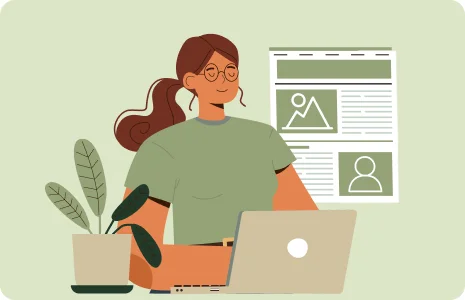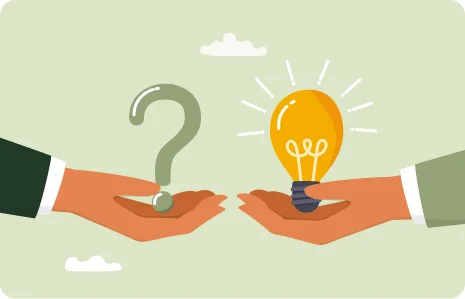The rise in technology has made our lives extremely convenient. It takes two taps to like a picture, three taps to comment on a post, and just a few more taps to purchase the latest trends straight from your social media feed. We are more connected than ever — or so it seems.
But while we live in the most technologically connected age in history, rates of loneliness have doubled since the 1980s. This striking contrast between increased online connectivity and rising rates of loneliness is known as the loneliness paradox. Digital connections offer undeniable convenience, but they fail to fulfill our need for authentic human interaction. So, while having thousands of followers on social media looks nice, those digital acquaintances fall short when it comes to our need for connection.
The Loneliness Epidemic
Loneliness is often described as a state of being disconnected from social relationships. It can look like physical isolation or emotional detachment, both of which can be caused by an excessive use of technology.
When talking about the loneliness epidemic, it’s crucial to differentiate between the quantity and quality of social interactions. Online interactions, while easily accessible, often lack depth and emotional connection, which can create feelings of loneliness and isolation despite having endless access to online friends and followers.
Social media is often described as a highlight reel where people only promote the best versions of their lives. This type of online behavior can lead to comparison, creating feelings of inadequacy and loneliness in those viewing the posts. Beyond that, the need to please an audience can put unhealthy pressure on those doing the posting. In both cases, digital engagement leaves the person behind the screen feeling unfulfilled and lonely.
Over half of Americans report spending more than 50% of their time online. The overuse of technology can eliminate opportunities for face-to-face interactions, causing physical isolation. We crave in-person community, but it can be easy to hide behind technology when social interactions are difficult or uncomfortable. But if we don’t actively pursue in-person interactions, feelings of isolation will only persist.
The loneliness epidemic is not something to be ignored. One-third of Americans say they feel lonelier than ever before. Some experts have called the loneliness epidemic an American health crisis and urge individuals to practice mindful use of technology and prioritize their health and well-being.
How To Build Meaningful Connections in the Digital Era
It seems fitting that one of the most effective ways to combat loneliness in the Digital Age would be to create and foster meaningful connections in person. Here are a few steps to become more aware of technology’s role in your life and redirect your focus toward healthy relationships and experiences.
1). Balance online and in-person interactions.
Online and in-person relationships all have value, but the key is finding a balance between the two. Engaging in offline social activities is essential to have shared experiences that develop meaningful relationships. If you prioritize spending time with your friends and family in person, you’ll increase the likelihood of experiencing the authentic and emotional connection you’ve been looking for.
2). Do a digital detox.
Technology shouldn’t consume your whole life. We can get so caught up in technology that we forget to look up and appreciate the world around us. Give yourself regular breaks from technology to reconnect with yourself and the world around you. A digital detox is a good way to remind yourself to enjoy the moment and appreciate the people who are right in front of you.
3). Practice mindful social media use.
Social media can be a blessing or a curse — it just depends on how you use it. Be aware of how much time you spend on social media platforms, and set boundaries on your social media usage. Consider how your online interactions are impacting your mental well-being. If you consistently struggle with comparison and low self-esteem, it may be time to take a step back and focus on yourself.
4). Focus on the quality of your relationships.
Social media creates a tendency to focus on the quantity of connections instead of quality. In both your online and offline relationships, be intentional about depth by prioritizing support and authenticity. You’ll probably find that a few truly meaningful relationships make you feel better than hundreds of distant online connections.
5). Get help when you need it.
If you find yourself struggling with persistent feelings of loneliness, it may be time to reach out to a professional or support group. Excessive technology use can create feelings of low self-esteem, which can lead to depression. It can also cause an information overload, making it easy to become overwhelmed or anxious. These feelings, in addition to loneliness, can be highly detrimental to your mental health and should be taken seriously.
Technology has had a tremendous impact on our society and culture. It’s streamlined countless processes, saving us considerable time and energy. In some ways, the convenience and efficiency of technology offer us a chance to become even more connected. The problem lies in how we choose to use it. The saying “everything in moderation” certainly applies. When used well, technology allows us to spend less time on meticulous tasks and more time creating meaningful connections. But if used unwisely, it can create an illusion of connection that leads to severe feelings of loneliness and isolation.
Feeling lonely can be confusing, especially when it seems like technology should solve our need for connection. At iTrust, we know loneliness is a valid feeling and, if not taken seriously, can lead to other mental health problems. Whether you’ve just started struggling with loneliness or have been experiencing it for years, we’re here to help. Our team of experts can provide the support you need to push past the illusion of connection that technology creates and start forming meaningful connections with those around you.




